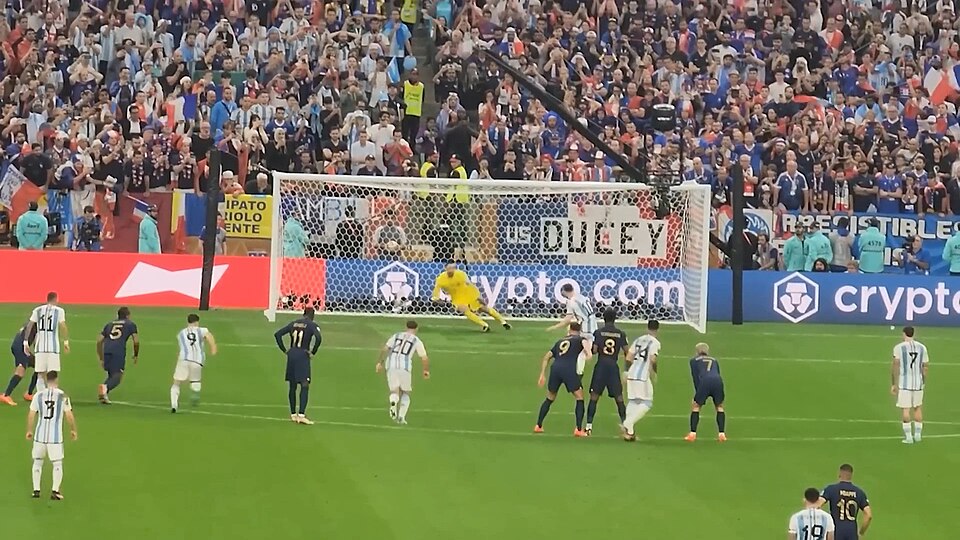The FIFA World Cup: A Comprehensive Overview
The FIFA World Cup is arguably the most prestigious and widely viewed sporting event in the world. Here’s a breakdown covering its history, format, significance, and more:
1. History & Origins
- Early Years (1930-1938): The idea for a global football tournament began in the early 20th century, fueled by football’s growing popularity. FIFA (Fédération Internationale de Football Association), founded in 1904, organized the first World Cup in 1930 in Uruguay. Uruguay won the inaugural tournament. The early World Cups were less globally representative due to travel difficulties and political tensions.
- Post-War Growth (1950-1970): The World Cup gained momentum after World War II. The 1950 tournament in Brazil (marked by the “Maracanazo” – Uruguay’s shocking win over Brazil in the final) and the emergence of stars like Pelé in the 1958, 1962, and 1970 tournaments significantly boosted its popularity.
- Modern Era (1974-Present): The tournament continued to grow in scale and global reach. Television coverage expanded, commercialization increased, and the number of participating teams was gradually expanded. Notable moments include Argentina’s victory in 1978 (amidst political controversy), Italy’s triumph in 1982, Maradona’s “Hand of God” in 1986, and the rise of new footballing powers.
2. Format & Qualification
- Qualification: The World Cup isn’t a free-for-all. National teams must qualify through a series of regional qualifying tournaments organized by the six FIFA confederations:
- UEFA (Europe): Most competitive, with numerous teams vying for a limited number of spots.
- CONMEBOL (South America): Highly competitive, often with a direct qualification path for the top teams.
- AFC (Asia): Increasingly competitive, with a growing number of strong teams.
- CAF (Africa): Five spots (expanding to 9+1 in 2026) are allocated, leading to intense competition.
- CONCACAF (North & Central America, Caribbean): Three to six spots, depending on the host nation.
- OFC (Oceania): Typically one spot, often requiring a playoff against a team from another confederation.
- Final Tournament:
- Group Stage: 32 teams (expanding to 48 in 2026) are divided into eight groups of four. Teams play each other in a round-robin format. The top two teams from each group advance to the knockout stage.
- Knockout Stage: Single-elimination matches:
- Round of 16: 16 teams compete.
- Quarter-Finals: 8 teams compete.
- Semi-Finals: 4 teams compete.
- Third-Place Playoff: A match between the losing semi-finalists.
- Final: The two winning semi-finalists compete for the World Cup trophy.
3. Key Stats & Records (as of December 2023)
- Most Titles: Brazil (5) – 1958, 1962, 1970, 1994, 2002
- Most Appearances: Brazil (22)
- Most Matches Played: Brazil (106)
- Most Goals Scored: Miroslav Klose (Germany) – 16 goals
- Most Assists: Lionel Messi (Argentina) – 8 assists
- Youngest Player: Norman Whiteside (Northern Ireland) – 17 years, 41 days (1982)
- Oldest Player: Roger Milla (Cameroon) – 42 years, 39 days (1990)
- Fastest Goal: Hakan Şükür (Turkey) – 11 seconds (2002)
- Highest Scoring Match: Austria 7-5 Switzerland (1954)
4. Significance & Impact
- Global Spectacle: The World Cup is watched by billions of people worldwide, making it the most-watched sporting event.
- National Pride: The tournament fosters immense national pride and unity.
- Economic Impact: Hosting the World Cup can have a significant economic impact on the host country, both positive (tourism, infrastructure development) and negative (costs, potential displacement).
- Cultural Exchange: The World Cup brings together people from different cultures and backgrounds, promoting understanding and exchange.
- Football Development: The tournament inspires young people to play football and contributes to the development of the sport globally.
- Political Influence: The World Cup has sometimes been used as a platform for political statements and can be affected by geopolitical tensions.
5. Recent & Future Tournaments
- 2018 (Russia): France won, defeating Croatia 4-2 in the final.
- 2022 (Qatar): Argentina won, defeating France in a thrilling penalty shootout after a 3-3 draw. This was Lionel Messi’s crowning achievement.
- 2026 (USA, Canada, Mexico): This will be the first World Cup with 48 teams. It’s also the first time the tournament will be co-hosted by three countries.
6. Controversies
The World Cup hasn’t been without its controversies:
- Corruption: FIFA has faced numerous allegations of corruption related to bidding processes and financial dealings.
- Human Rights Concerns: The 2022 Qatar World Cup was heavily criticized for its human rights record, particularly regarding migrant workers.
- VAR (Video Assistant Referee): The introduction of VAR has been controversial, with debates about its accuracy and impact on the flow of the game.
- Political Protests: Players and fans have sometimes used the World Cup as a platform for political protests, leading to debates about freedom of expression.
Where to find more information
- FIFA Official Website: https://www.fifa.com/
- ESPN FC: https://www.espn.com/soccer/world-cup/
- BBC Sport – World Cup: https://www.bbc.com/sport/football/world-cup
This is a broad overview. The World Cup is a complex and fascinating event with a rich history and a significant impact on the world. Do you have any specific aspects you’d like me to elaborate on? For example, are you interested in:
- A particular World Cup year?
- The qualification process in a specific region?
- The impact of VAR?
- The controversies surrounding a specific tournament?
- The future of the World Cup?
